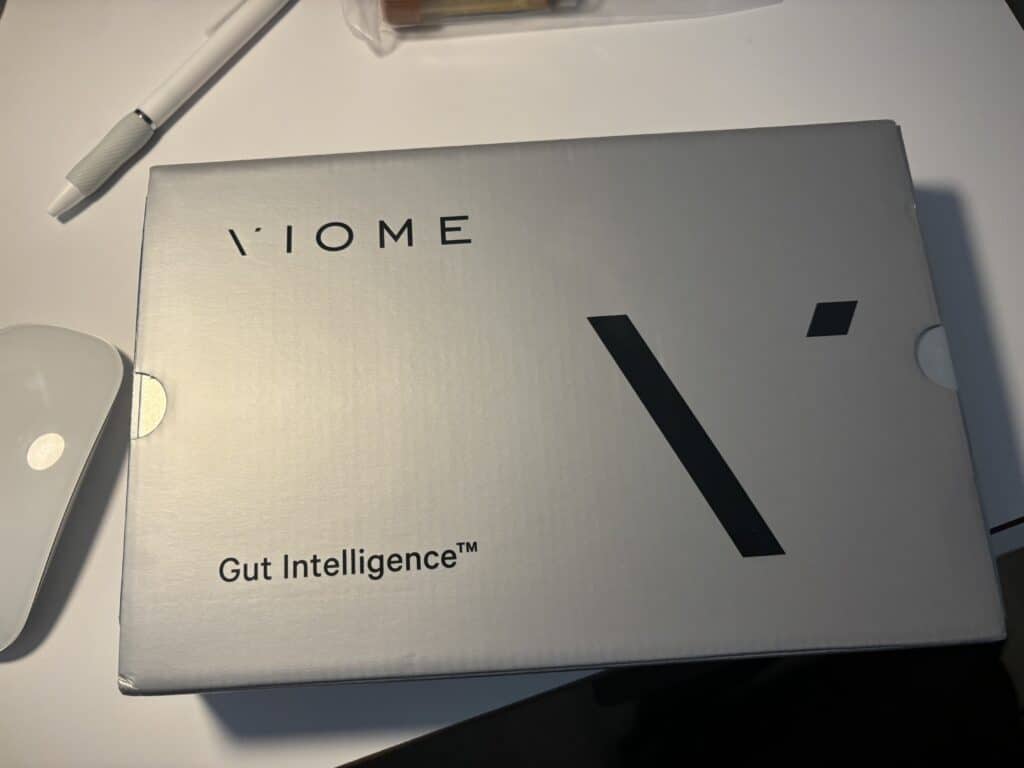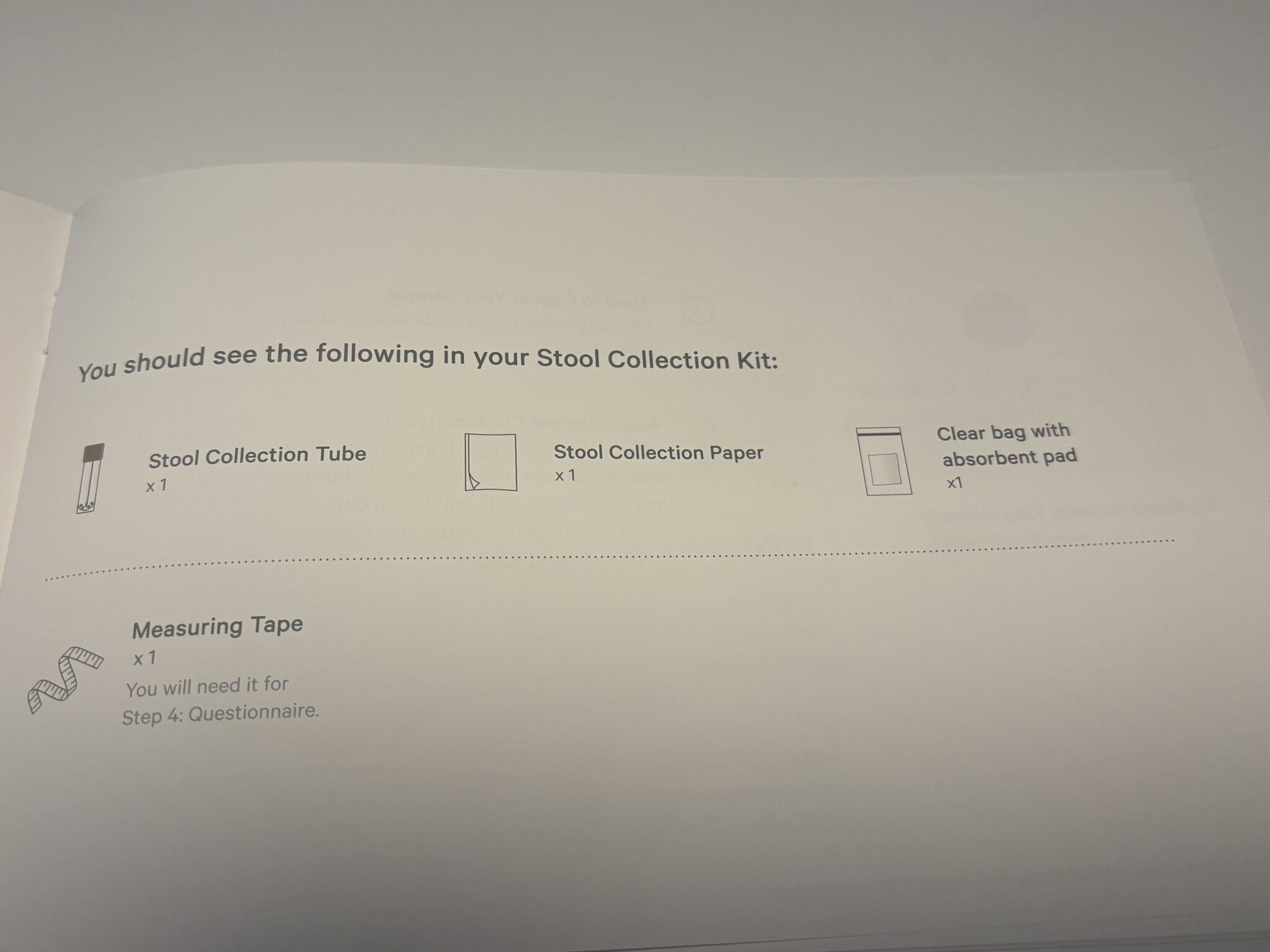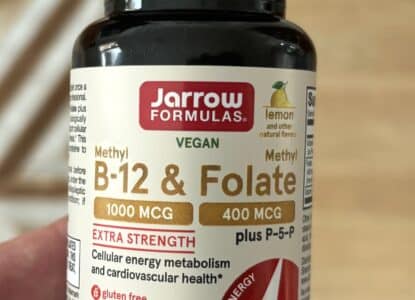My Viome Review: Are Consumer Microbiome Tests Worth The Cost?
Article at a Glance
- Viome’s user interface and collection process are smooth and easy, and better than other microbiome tests I have tried.
- My results, while valuable and interesting, were geared more towards supplementation than I would have liked.
- Overall, Viome is an excellent platform for anyone looking for a basic understanding of the state of their microbiome.

Contents
“DNA diet” products like we offer at Gene Food, and microbiome startups, like Viome and Zoe Nutrition offer a personalized approach to eating, and both sides have real value for users.
As you may expect, microbiome researchers tend not to mention the science of nutrigenomics, despite the fact that microbiome research is still very much in its infancy.
In fact, using Viome reinforced for me the value in having access to genetic data when making foundational nutrition and health decisions. Genetic data offers a nice base layer to then build on with innovative products like Viome, which is clearly an industry leader.
I purchased the Viome “Gut Intelligence” test and will share both the good and the “meh” in this review. At the time I purchased, Viome offered Gut Intelligence for $279, or for $79.95 per month when customers subscribe to Viome’s probiotic and prebiotic supplements for a minimum of three months.
What I liked about Viome
- Excellent user experience
- Easy to take a sample
- Registration and logistics professional and seamless
- Easy to navigate foods list
As someone who has operated Gene Food now for 7 years, I know firsthand that test kit businesses are hard to run. There are several logistical challenges sending consumers a product that requires both a human sample and return shipping, and Viome does an excellent job making the process is user friendly.
The bottom line here for readers is that, unlike a DNA test, which requires a simple cheek swab, microbiome testing requires catching actual poop on a paper sheet (while sitting on the toilet) and then taking a small sample to drop into a tiny tube.
If you have little kids at home and are used to changing diapers, it will be a breeze.

Get Started With Personalized Nutrition
Gene Food uses a proprietary algorithm to divide people into one of twenty diet types based on genetics. We score for cholesterol and sterol hyperabsorption, MTHFR status, histamine clearance, carbohydrate tolerance, and more. Where do you fit?
The Viome instruction booklet and toolkit makes the process of collecting the stool sample relatively painless by ensuring that the paper sheet used to collect the stool is flushable. This detail sets Viome apart from some other providers who have cut corners on packaging, and makes the process relatively painless. The stool collection paper has sticky edges on two sides so you can drape it across the toilet bowl in order to collect the sample. Having said that, it can be difficult to “land” the stool sample onto the paper without it falling off.

Registering the kit is also seamless and easy with Viome. Viome users register the kit as part of the account creation process, and most will be able to follow the instructions with success.
Further, and although I am somewhat skeptical of the data underlying the results, Viome does an excellent job organizing its food lists by category, from foods to avoid to superfoods, but skip the app. I found the desktop results much easier to navigate than the app.
What I didn’t like about Viome
- Intake questionnaire unrelated to results
- Focus on selling supplements
- Hungry for more science
As part of the account creation process, Viome did two things I don’t love. First, there is a prompt for activating a facial recognition login feature, which felt unnecessary to me.
Next, Viome collects an extensive questionnaire asking for very detailed health information when logging in for the first time. Some of the questions relate to digestive health, but others reach far afield of the subject matter covered in the results, which are far more limited in scope that the questionnaire leads you to believe. After seeing how limited my test results were, the intake questionnaire felt like an attempt to mine data rather than tailor information to my unique circumstances.
I have included a screenshot of the topics covered below.

My results
Next, the Viome testing process was somewhat short on data, perhaps because they don’t want to overwhelm their users, with most of the reporting at a 101 level. If you are a biohacker type who likes to get in the weeds with detailed reports, Viome may not be the test for you.
The most important thing I learned was that my microbiome is overproducing TMA, which is the precursor for a molecule called trimethylamine-N-oxide, or TMAO for short. However, after a follow up blood test with Quest Diagnostics, my results had changed, with blood testing showed my TMAO levels at 6.1 uM, which is in the healthy range.
Viome could have been accurate and in the period between taking Viome and the Quest labs, my microbiome evolved.

The TMA discovery is potentially very valuable for some consumers, but don’t need a microbiome test to measure TMAO. These tests are also available through Cleveland Heart Labs and some others, where they can be covered by insurance (as my blood testing was).
The thing about TMAO is that, yes, there is a New England Journal of Medicine study linking TMAO to increased risk of heart disease. However, when I have interviewed Dr. Tom Dayspring, a nationally recognized lipid expert, he has been adamant that TMAO isn’t “ready for primetime” as a core cardiovascular risk biomarker, like APOB.
Nonetheless, after receiving my Viome results I did cut back some on eggs and red meat and pushed my diet much more to the plant based side of the spectrum (ironically, this was consistent with my Gene Food diet type).

Get Started With Personalized Nutrition
Gene Food uses a proprietary algorithm to divide people into one of twenty diet types based on genetics. We score for cholesterol and sterol hyperabsorption, MTHFR status, histamine clearance, carbohydrate tolerance, and more. Where do you fit?
Viome also recommended I avoid barley because it may be a gut irritant. The results mention correctly that the gliadin protein in wheat can cause the release of zonulin, a protein that can damage the lining of the gut leading to a condition known as “leaky gut.” The issue for me was that the test couldn’t tell me what my zonulin levels were just that wheat proteins might be irritating the lining of my gut.
The study Viome uses in support of this proposition concludes:
Increased intestinal permeability after gliadin exposure occurs in all individuals. Following gliadin exposure, both patients with gluten sensitivity and those with active celiac disease demonstrate a greater increase in intestinal permeability than celiacs in disease remission.
https://pubmed.ncbi.nlm.nih.gov/25734566/
This is a good reminder that wheat is hard for many of us to digest, and that there can be real benefits to going on a gluten free diet, even absent celiac disease. The issue for me was the lack of personalization. For example, I recently had tissue transglutaminase labs done which showed no elevation in my TtG IgA or IgG markers even when incorporating wheat into my diet.
Nonetheless, the Viome results lined up with my Gene Food Wheat Panel results which does flag me as Wheat Sensitive. I prefer the genetic baseline information as a starting point over the generic recommendations from Viome, at least for this trait.

Cutting edge
One portion of my results that were fascinating was the small segment devoted to the “virome.” Bell pepper and tomato were listed as foods to avoid because a plant virus commonly found in these foods was discovered in my microbiome.
Although I suspect the research in this field is very early, and despite the fact that the name of the virus wasn’t listed, I was intrigued by the recommendation to avoid tomatoes and peppers for 30 days. The only issue here is again that microbiome products like to “take the high road” on science. The virome is very far behind the extensive world of research we have from thousands of GWAS studies, which is why we feel that much of the criticism of DNA diets from microbiome outfits like Zoe does have inherent conflicts of interest.
Asking users to avoid tomatoes and bell peppers with a vague reference to the virome, while interesting, felt like psuedoscience.

Selling supplements and room to improve
I have friends in the microbiome space and know that profits are slim on test kits. Where the industry makes money is by selling supplements, both prebiotics and probiotics.
And while there is nothing wrong with selling supplements when they add real value, the Viome process leans into the sales pitch a bit too hard for my taste. It’s clear from the beginning that the goal is to sign customers up for subscription supplements, which is something I would have been more inclined to do had the results and data been more extensive. For example, I would have loved to have seen the taxonomy data for the current makeup of the bacteria populating my microbiome.
Overall, the most important thing I learned using Viome was that I have been overproducing TMA, and that it’s time to cut back on eggs for awhile. The interface is well done and the registration process is smooth. I will be excited to see the product evolve as microbiome research progresses and I definitely left feeling enhanced confidence in the value of what we do at Gene Food.



